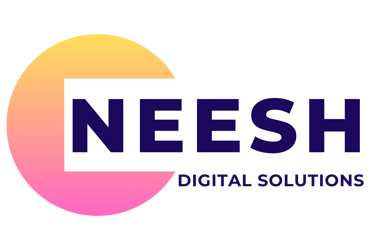Top 5 Advantages and Disadvantages of Digital Marketing
Why Digital Marketing Can Make or Break Your Business
Anamika Pandey
3/19/20253 min read


Importance of Digital Marketing in Today’s World
In today’s digital age, businesses rely heavily on online marketing to reach their target audience. With the increasing number of internet users, digital marketing provides companies with a cost-effective way to enhance brand visibility, drive engagement, and boost sales. It allows businesses to connect with customers in real time, offering personalized experiences and measurable results.
Definition of Digital Marketing
Digital marketing refers to the use of online platforms, tools, and technologies to promote products or services. It encompasses various strategies such as social media marketing, search engine optimization (SEO), pay-per-click (PPC) advertising, email marketing, and content marketing..
Top 5 Advantages of Digital Marketing
2.Wide Audience Reach
Unlike traditional marketing, which often focuses on local audiences, digital marketing provides a global reach. Businesses can target customers from different geographic locations through social media, search engines, and email campaigns. Platforms like Facebook, Instagram, and LinkedIn help brands connect with a diverse audience, expanding their reach beyond borders.
1.Cost-Effective Marketing
One of the biggest advantages of digital marketing is its affordability compared to traditional marketing. Traditional advertising methods, such as TV and print ads, require a significant budget. In contrast, digital marketing options like PPC and social media ads allow businesses to set flexible budgets and optimize spending based on performance.
3.Targeted Marketing
Digital marketing enables businesses to create highly targeted campaigns using data analytics. With AI and machine learning, companies can segment their audience based on demographics, interests, and online behavior. Personalized marketing increases engagement and improves conversion rates, leading to higher customer satisfaction.
5.Higher Conversion Rates
4.Increased Engagement
Optimized digital marketing strategies lead to better conversion rates. Sales funnels, email marketing, and remarketing techniques help nurture leads and encourage potential customers to take action. Businesses can use automated email sequences and targeted advertisements to convert visitors into paying customers.
Unlike traditional marketing, digital marketing allows two-way communication between brands and customers. Social media platforms enable businesses to interact with their audience through comments, direct messages, and live chats. This real-time feedback helps brands build stronger relationships and enhance customer trust.
Top 5 Disadvantages of Digital Marketing
2.Security and Privacy Concerns
Online marketing involves collecting and storing customer data, making businesses vulnerable to data breaches and cyber threats. Privacy concerns and strict regulations, such as GDPR, require companies to implement secure data protection measures to gain customer trust.
1.High Competition
The digital space is highly competitive, making it challenging for businesses to stand out. With numerous brands vying for attention, companies must invest in innovative marketing strategies, quality content, and SEO to stay ahead.
3.Negative Feedback and Public Criticism
Social media provides a platform for customers to share their opinions instantly. While positive reviews boost credibility, negative feedback can harm a brand’s reputation. Businesses must actively manage their online presence and address criticism professionally.
5.Dependence on Technology
4.Risk of Ad Fraud
Digital marketing relies heavily on technology, making businesses susceptible to technical issues such as website crashes, server downtimes, and software glitches. Additionally, changes in search engine algorithms can impact rankings, affecting online visibility and traffic.
Digital marketing is susceptible to ad fraud, such as click fraud and fake traffic. Bots and malicious activities can inflate metrics, leading to wasted advertising budgets. Businesses must use reliable ad monitoring tools to detect and prevent fraud.
Conclusion
Digital marketing offers numerous advantages, such as cost-effectiveness, global reach, targeted campaigns, and real-time engagement. However, it also comes with challenges like high competition, privacy concerns, and the need for continuous learning. To succeed, businesses must balance these pros and cons, leveraging the right strategies to achieve their marketing goals.
Frequently asked questions
1.Is digital marketing better than traditional marketing?
It depends on business goals. Digital marketing is cost-effective and has a wider reach, while traditional marketing can be more impactful locally.
2.How can I overcome the competition in digital marketing?
Focus on unique branding, SEO, and consistent content creation to stand out.
3.Is digital marketing suitable for small businesses?
Yes! It offers affordable advertising options, making it ideal for startups and small businesses.
4.How do I protect customer data in digital marketing?
Use secure payment gateways, encryption, and comply with data protection laws like GDPR.
5.What’s the best platform for digital marketing?
It depends on your target audience. Google Ads, Facebook, Instagram, and LinkedIn are popular choices.
